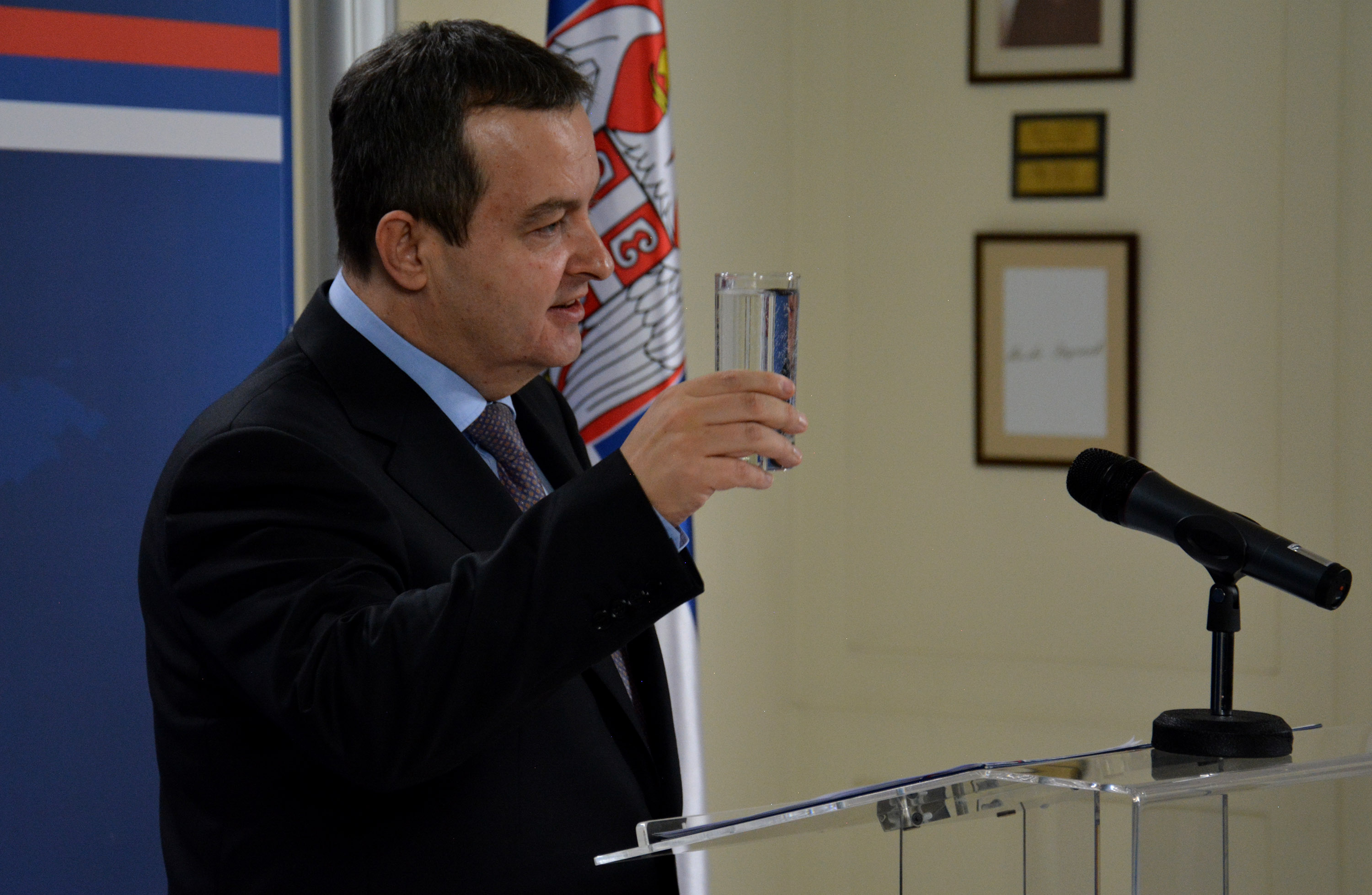



| Thursday, 14 January 2016. | |
| Statement by Minister Dacic at the Ministry of Foreign Affairs New Year’s cocktail reception | |
| + larger fontnormal font- Smaller font |
 "Excellencies, "Excellencies,Ladies and Gentlemen, May I welcome you, first of all, and wish you a happy and prosperous New Year, 2016. Let me take this opportunity to remind you of the achievements made by the Ministry of Foreign Affairs in 2015. I am at liberty to say that the international position of the Republic of Serbia has strengthened over the past year. One of Serbia's greatest successes last year was the opening of its first negotiating chapters with the European Union. In this context, I particularly wish to highlight prevention of the Srebrenica resolution from being adopted in the UN Security Council, and of Kosovo's bid for UNESCO membership, whose admission to this Organization was not supported even by some of the states which have recognized the unilateral declaration of independence of Kosovo, such as Japan, Korea, Poland, Colombia and Peru. Serbia proved to be an impartial and objective OSCE Chair, capable of keeping all communication channels open, notwithstanding the difficult circumstances marked by the Ukrainian crisis, which deepened the crisis of trust already evident on the international scene. During the Ministerial Council, Belgrade was the diplomatic capital of the world and the venue not only of ceremonial meetings, but also of concrete and constructive discussions addressing global concerns, as evidenced by meetings between Minister Lavrov and Secretary of State Kerry, as well as between Russian and Turkish Foreign Ministers Lavrov and Cavusoglu. At the Ministerial Council, we managed to reach consensus on, regrettably, the increasingly important area of fight against terrorism by adopting two decisions: on stepping-up the OSCE efforts aimed at combating terrorism in the light of recent terrorist attacks, and on the prevention of, and fight against, violent extremism and radicalization leading to terrorism. An indicator of our strong commitment and strengthened international position is also the fact that only one country - Antigua and Barbuda, recognized the unilateral declaration of independence of Kosovo in 2015. Regional cooperation, strengthening of relations with neighbouring countries as well as the continuation of the reconciliation policy are Serbia's foreign policy priorities on regional level all contribute significantly also to our strategic foreign policy objective of EU membership. The most important initiative of the regional cooperation aimed at European integration is the "Berlin Process" which provides the political framework in support of the European path of the Western Balkans participants through very concrete projects and activities. Through its constructive efforts aimed at regional cooperation development, the Republic of Serbia was given the Chairmanship of the Migration, Asylum and Refugees Regional Initiative (MARRI) in the period from June 2016 to June 2017. The Republic of Serbia closely cooperates with the European Commission but also bilaterally with the participating states to the European macro-economic strategies: the Strategy for the Danube Region and the Strategy for the Adriatic and Ionian Region. As of 1 July 2016, Serbia will assume half-yearly Chairmanship of the Organization of the Black Sea Economic Cooperation (BSEC). Special priority will be attached to further promotion of economic cooperation in the region. The Republic of Serbia will also use the occasion to promote its country and its capacities in many areas of cooperation such as tourism, transportation, infrastructure and energy. The BSEC Chairmanship will end with the meeting of the Council of Ministers of Foreign Affairs to be held in Belgrade, in December 2016, when, I am sure, our capital will be an excellent host once again. I wish you every success both in your personal and professional life. Thank you." |